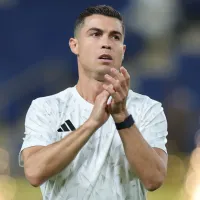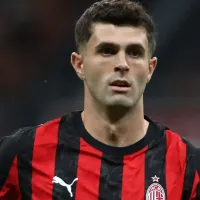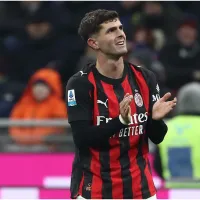
Going into the 2013-14 Ligue 1 season, all the talk is centered around AS Monaco FC. With Monaco’s tax advantages causing quite the controversy, the prospective Ligue 1 powerhouse makes a strong case for players to transfer to The Principality. Dmitry Rybolovlev and his millions bring in the kind of purchasing power that Ligue 1 has only seen once, and that is with the current Paris St.-Germain organization. But was the purchase of AS Monaco FC by the Russian billionaire the right choice for future investment?
Currently, the debate regarding the Monaco purchase centers around the tax advantages that AS Monaco’s staff, players and organization will receive by being based in Monaco. With the Ligue de Football Professionnel (or LFP) stating that Monaco will have to move its operations to France by this time next year, the team continues to fight the decision in court to keep their advantageous edge in France’s top club level. The tax status has already netted the club top-notch players, both with and without Ligue 1 experience, and they will more than likely be a successful team in the French league. Paris St.-Germain has already shown that throwing tons of money into a team will bring success.
But even with that, was AS Monaco FC the right choice for Rybolovlev? When looking at the surface, most observers are only looking at the situation in a skin-deep manner. They only center on the tax debate without looking at other factors. The argument is that top-notch players will automatically consider Monaco as their top transfer destination purely because of taxes. But if we look at the case of Zlatan Ibrahimovic at PSG, even an income tax of 75% didn’t prevent the player from making the move to France’s capital. The question then needs to be asked if the tax issue has been blown out of proportion. Yes, the tax advantages are nice for players as well as foundation for building a strong club, but where is it on the list of player priorities? Are taxes the “end-all” when it comes to contract negotiations, or just a nice convenient factor?
Even with the tax debate, there are a number of other factors that any buyer of Monaco should have been worried about. It seems that the idea of having a tax-free team has led Rybolovlev to not even consider these other factors. But in the end, they might be the factors that determine if Monaco is a successful investment or not.
The first factor that has to be considered is AS Monaco’s fan base. Year after year, Monaco ranks among the bottom (if not the bottom as far as percentage of seats occupied) in Ligue 1 and Ligue 2 attendance. If we look at the last time that Monaco was in Ligue 1, which was the 2010-11 season, their attendance rarely exceeded 10,000 spectators. What is even more interesting is if we examine visiting teams that usually draw a crowd, like Marseille — only 10,991 showed up to see OM play at the Stade Louis II. In comparison, 49,384 showed up at The Velodrome to see visiting Monaco play Marseille. This trend continues with the other top teams as well. With Lyon, only 11,140 fans showed up to Stade Louis II, with 35,257 showing up at the Stade Gerland for Monaco.
In both the Marseille and Lyon case, travel from these cities to Monaco is less than three hours away, so many of the fans attending the games could be from the visiting side. So what about other clubs that are located further away? The numbers get worse. PSG only drew 9,338, Lille only 7,986 and Bordeaux only 5,023. In the case of Bordeaux, only 27% of the Stade Louis II was occupied.
An important factor when examining fan bases in French football is that they cannot be artificially created. Even if a team is successful on the European level (which Monaco has had small success), that success isn’t transferred over into international, or even local, popularity. We can look at both PSG and Marseille, the French clubs with the largest international following, and see that their fan base still remains strongly rooted in France. With that being said, Monaco still needs to actually build a French fan base before they can even consider building an international base.
One thing that seems to have been misunderstood by Dmitry Rybolovlev’s people is the concept of sport in France. French sport supporters are very rigid on what sports they follow. Some like soccer and only soccer. Some like rugby and only rugby. Some like both sports, and some like neither. With that being said, it is less likely to bring new fans into French football that aren’t already there. In addition to sports loyalty, there is also rigid team loyalty. Supporters who are OGC Nice fans won’t jump over to support AS Monaco FC because it is a newly successful team that is close. Nice fans will remain Nice fans through thick and thin. Therefore, Monaco won’t be able to get new fans from other sports or other teams, because it just doesn’t happen that way in France.
A problem that Monaco also faces is the size of the country, which only has a population of 36,000 people. With such a limited population, it will be hard to build a fan base. And, as previously mentioned, OGC Nice has captured the population of Nice, which is currently over 340,000 residents. If Monaco had a larger population, they could build a larger fan base. One example of this happening is in another sport, which is ice hockey. The Chicago Blackhawks were one of the worst teams as far as attendance in the National Hockey League in 2006. But once the team started winning championships, they sold more seats to games, and currently have one of the longest sellout streaks in the NHL. The reason why this is the case is that Chicago has the population to support a successful hockey club and become financially stable because of the population. Monaco severely lacks in this. With Nice to the west and Italy to the east, Monaco will have a hard time filling their stands on a regular basis.
Another issue that is a problem for Monaco, as well as for all Ligue 1 teams, is the lack of promotion in the English-language markets. It can be argued that the United States has the most fluid soccer fan base in the world, with kids from the St. Louis suburbs supporting an English club from a city that they have never visited. But because of the promotion of these clubs by the English-speaking media, teams like Liverpool, Manchester United and Chelsea have a strong American following with absolutely no connection whatsoever between club and fan. Basically, American fans “pick” their team of support. Even non-English teams, such as Real Madrid and Barcelona, benefit from the English language exposure. But French football hasn’t tried to break into the English-speaking market. And when they have tried, the attempts have been halfhearted and filled with problems. This will surely hurt Monaco, who will rely on a new fan base “picking” Monaco as their favorite team, since organically growing a fan base will not be possible.
The problems mentioned above just focus on the fan base. But what about the actual players coming into the system? While many players are disciplined, there are others who will take advantage of the glitz and glamor that a Monaco lifestyle offers. The best example of this is Eiður Guðjohnsen. Guðjohnsen arrived in Monaco from Barcelona in 2009 and immediately gained the reputation of being a Monaco playboy. As a result, Guðjohnsen only played nine games for The Principality, then was immediately loaned to Tottenham and then quickly sold to Stoke City in 2010. If players who arrive in Monaco aren’t disciplined, they could see a similar fate to Eiður Guðjohnsen.
If we look deeper into Monaco, we can see that just having an advantageous tax status doesn’t necessarily mean that AS Monaco will be successful financially. They will more than likely be successful on the pitch, possibly even winning a Ligue 1 title and advancing far in future European competitions. But there is also a chance of the club being perpetually in the red. This doesn’t even factor in other issues, such as the Guðjohnsen episode, that can give the organization even more headaches. In the end, Dmitry Rybolovlev’s choice of Monaco might not have been the wisest.
So, if Monaco isn’t the best choice in France, what would be? There are a few smaller clubs that can easily be built up into mega-teams if the right buyer comes along. The best example of this would be Paris Football Club, or Paris FC. Currently, Paris FC is in France’s third division, the Championnat National, which means a small initial investment could see the club advance to Ligue 2 rapidly.
Not only does Paris FC have a financial advantage, they have a few wild cards as well. First, they have the word “Paris” in their name, which can easily bring both local and possible international recognition if they were to ever make it to Ligue 1. Second, a rivalry between Paris FC and PSG could be reignited. A strong rivalry started in the early 1970s between the two clubs when Paris FC split from PSG, which oddly saw Paris FC remaining in the First Division, while PSG was relegated to the Third Division. This rivalry could also lead to additional support. PSG’s biggest rival, Marseille, has a large fan base in Paris. With the addition of a new Paris-based rival, those OM fans living in Paris might consider Paris FC as their “number two” team, purely based out of the PSG-OM rivalry. Third, Paris FC’s stadium, Stade Charléty has a capacity of 20,000 and already qualifies for the minimum requirement of seats needed to be a Ligue 1 team. Also, the stadium is located in a different neighborhood than PSG’s Parc des Princes. True, Paris is known as a “rugby city,” but the overall population is more than enough to support two strong football teams.
While being the best example, Paris FC is just one example of French teams out there that can be purchased at a bargain with possibly bigger profits than Monaco. When putting other factors into play, teams like Paris FC can be successful. On the other hand, Monaco has already had their time in the limelight, which includes European success, and has still not been able to show that they can build, much less retain a loyal fan base and bring in profits to justify overspending on a team. With a little more research, Dmitry Rybolovlev might have chosen his team more wisely. But the “no taxes” idea seems to have led to a snap judgment.













